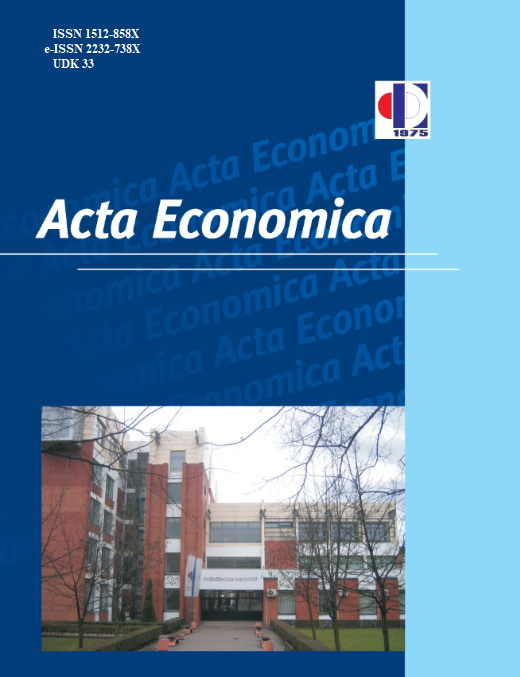Currency Board Policy and Economic Development of Bosnia and Herzegovina in the Context of European integration
DOI:
https://doi.org/10.7251/ACE1727009MAbstract
Bosnia and Herzegovina is a small and open economy in transition with great distrust in local authorities and institutions. The country applies a currency board as the only acceptable and optimal exchange rate system in order to protect its monetary policy from political influences. The strict rules of the currency board provide monetary stability and confidence in the domestic currency, but disable the pursuit of discretionary monetary policy and limit autonomous fiscal policy for the purpose of stimulating an investment cycle and economic development without coordinated accompanying support of monetary policy.The subject of this paper is an analysis of the short-term and long-term effects of the currency board application in Bosnia and Herzegovina in conditions of increasing liberalization through the process of European integration. Given the negative consequences and limitations of the currency board system, this paper analyses in particular the possibility of introducing a central bank with discretionary monetary policy instruments, as well as other measures that can influence the overvaluation of the domestic currency exchange rate.
The scientific methods used in the paper are: inductive-deductive method, descriptive method and statistical method. The conclusion and recommendations are
obtained by using inductive-deductive method and descriptions of current economic
trends based on numerous secondary statistical data presented in the tables and
charts.
Downloads
Published
2018-12-24
Issue
Section
Чланци

